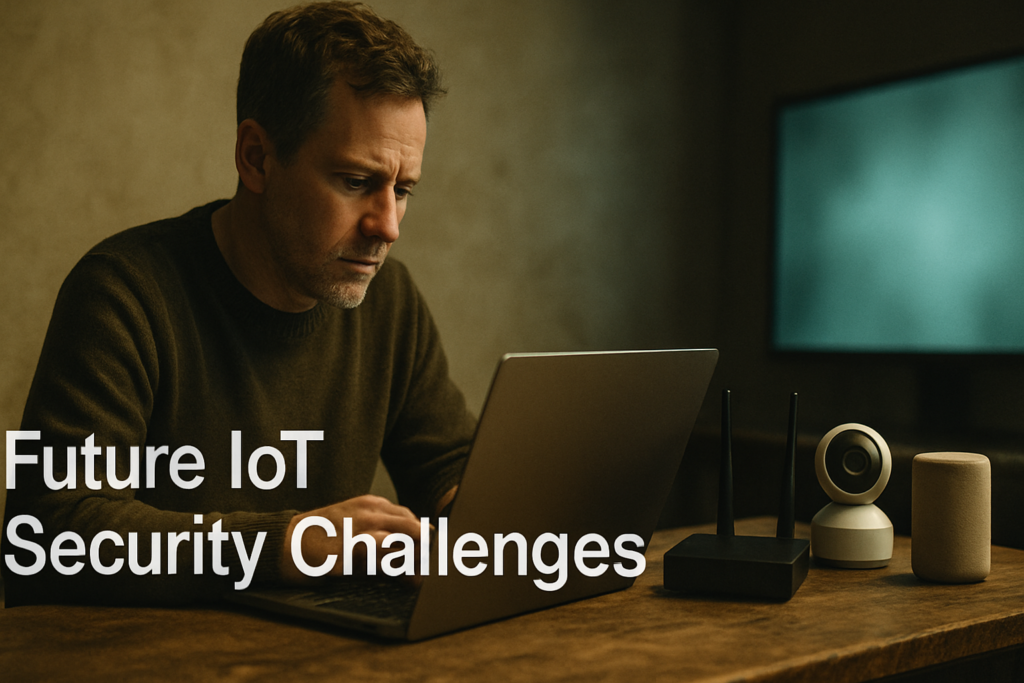As we step into a digital age defined by innovation and connectivity, the concept of Smart Cities powered by the Internet of Things (IoT) is rapidly transforming urban landscapes worldwide. Imagine a city where traffic flows seamlessly, energy is optimized, and public services are delivered efficiently – this is the vision that IoT applications are bringing to life. In this article, I’ll delve into the exciting realm of Smart Cities, exploring the diverse range of IoT applications and the myriad benefits they offer.
From smart transportation systems that reduce congestion to intelligent waste management solutions that enhance sustainability, IoT is revolutionizing how cities operate and interact with their residents. By harnessing real-time data and cutting-edge technology, Smart Cities are paving the way for a more interconnected and sustainable future. Join me as we unravel the potential of IoT in shaping the cities of tomorrow and unlocking a host of benefits for urban dwellers worldwide.
Evolution of Smart Cities
Transitioning from traditional urban centers to smart cities has been an evolutionary process fueled by technological advancements. As cities embrace the concept of connectivity and data-driven decision-making, the evolution towards smart urban environments is becoming more pronounced. Smart cities are not just a futuristic vision but a tangible reality that is shaping the way we live and interact with our surroundings.
In the journey towards smart cities, the integration of IoT technologies has played a pivotal role. IoT devices, sensors, and data analytics have revolutionized urban infrastructure, enabling the creation of interconnected systems that enhance efficiency and sustainability. From smart grid networks that optimize energy consumption to intelligent traffic management systems that reduce congestion, IoT applications are reshaping the urban landscape in profound ways.
The evolution of smart cities is characterized by continuous innovation and adaptation to meet the evolving needs of urban populations. As technologies advance and connectivity becomes more ubiquitous, the possibilities for enhancing urban living through IoT applications are limitless. The convergence of data, technology, and urban planning is ushering in a new era where cities are not just smart but also responsive, resilient, and citizen-centric.
Smart cities represent a paradigm shift in the way we conceptualize urban development, moving towards a model that is driven by data, connectivity, and sustainability. As we continue to witness the evolution of smart cities, the potential for IoT applications to further transform urban environments and improve quality of life is both exciting and promising. The future of smart cities lies in harnessing the power of technology to create urban spaces that are not only efficient and sustainable but also inclusive and livable for all residents.
IoT Applications in Smart Cities
I explore various IoT applications essential for the advancement of smart cities, each playing a crucial role in enhancing urban living through connectivity and data-driven solutions.
- Smart Energy Management
I discuss the integration of IoT devices and sensors in managing energy consumption more efficiently, allowing smart grids to optimize energy distribution based on real-time data. This leads to reduced wastage and promotes sustainability in urban energy usage. - Intelligent Transportation Systems
I delve into how IoT technologies revolutionize transportation systems, enabling smart traffic management, predictive maintenance of vehicles and infrastructure, and real-time monitoring to improve overall transportation efficiency and reduce congestion.
Urban Planning and Infrastructure
I elaborate on how IoT applications aid in urban planning and infrastructure development by providing valuable data for better decision-making. From smart waste management to optimizing public services, IoT plays a pivotal role in creating well-designed, sustainable urban spaces for residents.
Benefits of IoT in Smart Cities
Expanding on the advantages of implementing IoT in urban environments, I’ll explore the significant benefits that these technologies bring to Smart Cities.
Enhanced Infrastructure Efficiency:
Optimizing infrastructure operations with IoT sensors and data analytics.
Improving maintenance processes through predictive analytics for timely repairs.
Sustainable Resource Management:
Monitoring and managing resources like electricity and water more efficiently.
Reducing waste through real-time data insights and smart waste management systems.
Improved Public Safety:
Enhancing security measures with IoT-powered surveillance systems.
Implementing emergency response systems for quicker and more effective crisis management.
Enhanced Mobility and Transportation:
Optimizing traffic flow with real-time data analysis and smart traffic management.
Introducing smart parking solutions to reduce congestion and enhance parking availability.
Citizen Engagement and Quality of Life:
Empowering citizens with access to real-time city information through IoT-connected devices.
Enhancing overall living standards with IoT-enabled services like smart street lighting and public Wi-Fi hotspots.
These benefits underscore the transformative impact of IoT technologies in creating smarter, more sustainable, and efficient urban ecosystems.
Challenges and Considerations
As I delve into the realm of Smart Cities and their IoT applications, it’s crucial to address the challenges and considerations that accompany this technological evolution. Implementing IoT in urban environments presents a unique set of hurdles that must be navigated to ensure the success and sustainability of smart initiatives.
Data Security and Privacy Concerns
Ensuring the security of data transmitted and stored within Smart Cities is paramount. With the vast amount of information collected by IoT devices, safeguarding citizen privacy and preventing data breaches are significant challenges that demand robust cybersecurity measures.
Interoperability and Integration
The seamless integration of diverse IoT systems and devices poses a considerable challenge. Ensuring that various sensors, networks, and platforms can communicate effectively and share data in real-time is essential for the smooth operation of Smart City solutions.
Sustainability and Scalability
Balancing the sustainability of IoT infrastructure with the need for scalability is a key consideration. Smart Cities must design systems that can accommodate future growth and technological advancements while minimizing environmental impact and resource consumption.
Digital Inclusion and Equity
Promoting digital inclusion and ensuring equitable access to Smart City technologies is essential. Addressing the digital divide and ensuring that all citizens can benefit from IoT applications are critical factors in building inclusive and accessible urban environments.
Regulatory and Legal Frameworks
Navigating complex regulatory frameworks and legal considerations is a significant challenge for Smart City developers and policymakers. Compliance with data protection laws, privacy regulations, and ethical standards is essential to build trust and ensure the responsible deployment of IoT solutions.
By acknowledging and addressing these challenges and considerations, Smart Cities can proactively mitigate risks, foster innovation, and create sustainable urban environments that prioritize efficiency, inclusivity, and citizen well-being.


 Marylou Grant is a key helper at The Code Crafters Hub, where she contributes significantly to the development and growth of the platform. Her expertise in software development and her passion for technology make her an invaluable asset to the team. Grant's work involves everything from assisting with content creation to ensuring the site's functionalities meet the highest standards, which helps in delivering a seamless experience to users.
Her dedication to The Code Crafters Hub is evident in the quality of the updates and insights she helps provide. Grant’s role in the project reflects her commitment to advancing the field of software development and keeping the hub at the cutting edge of industry trends. Based in Warren, MI, she plays a pivotal role in ensuring that the platform continues to offer relevant and timely information on web development, game development, IoT, and cybersecurity.
Marylou Grant is a key helper at The Code Crafters Hub, where she contributes significantly to the development and growth of the platform. Her expertise in software development and her passion for technology make her an invaluable asset to the team. Grant's work involves everything from assisting with content creation to ensuring the site's functionalities meet the highest standards, which helps in delivering a seamless experience to users.
Her dedication to The Code Crafters Hub is evident in the quality of the updates and insights she helps provide. Grant’s role in the project reflects her commitment to advancing the field of software development and keeping the hub at the cutting edge of industry trends. Based in Warren, MI, she plays a pivotal role in ensuring that the platform continues to offer relevant and timely information on web development, game development, IoT, and cybersecurity.
